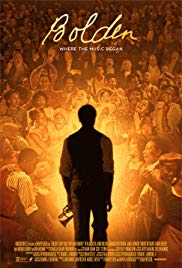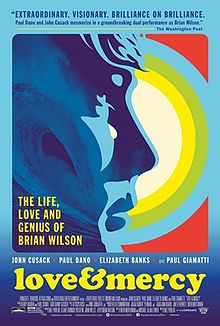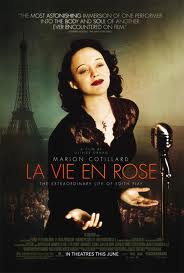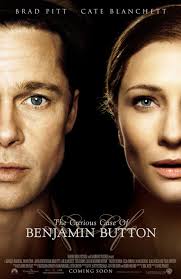Tracing the origins of jazz
to a head-banger’s ball
The premise of Dan Pritzker’s “Bolden” seems to be that Buddy Bolden is the real king of jazz. Pritzker said recently, “Out of jazz came the blues, rock and roll, essentially what we call American pop music. This anonymous black guy turned on the lights for everybody.” The movie never makes that sale.
Viewers expecting a hot air balloon ride through the history of jazz will spend the opening minutes of Pritzker’s ghastly production trying to figure out which end is up, the rest of the time, often cringing. “Bolden” isn’t a music biopic as much as a B- horror film. As far as aspirations, Pritzker feels it necessary to tell the viewer in opening screen text what the viewer is supposed to come to realize in the next couple of hours.
Apparently, “Bolden” was a long-germinating product tied to Pritzker’s 2010 “Louis.” Pritzker, of the very wealthy family that has contributed significantly to the arts, apparently has conceded a steep creative learning curve as a filmmaker. He first filmed “Bolden,” originally starring Anthony Mackie, in 2007, then “reshot the movie with a new lead several times over.” According to Pritzker’s co-producer, “He paid for his own film school, that first time around.” This is the problem with being a billionaire, as Pritzker is; had he been Robert Altman or John Cassavetes asking investors for financing for this subject, someone at least would’ve told him to give it up.
Most music biopics depict an artist hitting it big, then succumbing to substance abuse and sexual temptation. Check and check. But where there’s excitement in the members of Queen trying something we know as “Another One Bites the Dust” or Ray Charles lighting up a room with “What’d I Say” or Brian Wilson inventing “Good Vibrations” or Jim Morrison realizing Robby Krieger struck gold with “Light My Fire,” Buddy Bolden has no such standards because we’ve never heard his music and don’t know what, if anything, to believe.
“Bolden” reminds us, as have other films (including, coincidentally, the 2019 release “Amazing Grace,” Aretha Franklin’s 1972 gospel-album rehearsal), that a lot of greats caught flak for producing music frowned upon by the church. That was clearly the least of Buddy’s problems.
What the movie’s really telling us is that jazz came not from any New York conservatory but a hellhole, developed by desperate musicians whose talents, still a ways from commercial, were commandeered by the underworld, an underworld many greats were very much a part of. Pritzker’s film, like most music biopics, deems the musicians victims but very implicitly, maybe incidentally to its mission, suggests a common thread between mental health and substance abuse and calls into question cause-and-effect assumptions. Does the talent of these artists attract bad actors? Or do they find their way to them, their creative genius stemming from something that’s a little unhinged?
There’s more blood here than you’ll get in a Brian De Palma flick. When that’s no longer enough, there are eyes bulging and vomit dripping. It’s hard to tell what captivates Pritzker more, the faces of bludgeoned men or full-body nudity of prostitutes. Nobody in this town works a regular job, they are musicians, prizefighters, sex workers, drug dealers or fixers.
A critic at rogerebert.com claims the movie “is certainly never boring.” Actually, it is, by about the one-hour mark if not sooner, once the vibrant score fades. Pritzker senses this and invokes “Django Unchained” material (a reference made in the aforementioned review) to get “Bolden” home, but we already know — from the opening scene — where Buddy ends up.
While we get “Django”-like and “Benjamin Button”-like looks of New Orleans that you’ve seen before, there is indeed some beautiful camerawork. Sometimes, Pritzker’s images are startlingly impressive. Unfortunately, they usually depict a human being in some kind of agony, and just as you’re absorbing it, off we go to another flashback or flash-forward. Perhaps after a decade of filming, it’s too tempting to use everything.
Reno Wilson’s staggering turn as Louis Armstrong is the film’s jewel. It tells us that when this is all over, the music wins. But Satchmo’s show is constantly short-circuited by Pritzker’s cuts. Pritzker made an Armstrong film a decade ago and tries his best not to give in to it here.
Bad movies happen; fine. Thanks for trying. The question for viewers, particularly those who have bought a ticket to “Bolden,” is whether it’s so bad, it offends, that someone who doesn’t know what he’s doing is attempting the definitive statement of a venerable music figure who deserved much better, alive and dead.
1 star
(May 2019)
“Bolden” (2019)
Starring Gary Carr
as Buddy Bolden
♦
Erik LaRay Harvey
as Bartley
♦
Ian McShane
as Judge Perry
♦
Michael Rooker
as Pat McMurphy
♦
Yaya DaCosta
as Nora Bolden
♦
Reno Wilson
as Louis Armstrong
♦
Robert Ri’chard
as George Baquet
♦
Karimah Westbrook
as Alice Bolden
♦
JoNell Kennedy
as Ida Bass
♦
Kearia Schroeder
as Grace
♦
Serena Reeder
as Mavis
♦
Krystal Farris
as Belladonna
♦
Christina Marie Karis
as Bernadette
♦
Terri Abney
as Judith
♦
Breon Pugh
as Willie Warner
♦
Ser’Darius Blain
as Willie Cornish
♦
Calvin Johnson
as Frank Lewis
♦
Donald Watkins
as Brock Mumford
♦
Korey Webb-Turner
as James Johnson
♦
Justin Faulkner
as Cornelius Tillman
♦
Conrad Roberts
as Old Buddy 1
♦
Catherine Russell
as Lallique Lill
♦
Desmond Francois
as Young Buddy
♦
Nonoma
as Michael Williams
♦
Garrett J. Gray
as Westmore Bolden
♦
Trav
as Lucas
♦
Omar J. Dorsey
as Walter
♦
Wallace Merck
as M.C.
♦
Shad Gaspard
as Aaron Harris
♦
Keith Arthur Bolden
as Arthur Bass
♦
Keith Flippen
as Oscar Zahn
♦
Antjuan Rhames
as Broomstick
♦
Mark Withers
as Joe Segretto
♦
Romain Gateau
as Photographer
♦
Jeryl Prescott
as Felicite Lamennais
♦
Mark Jeffrey Miller
as Bailey
♦
Brittney Aleah
as Church Member
♦
Vincent Anthony
as Principle Dancer
♦
Marcus Bailey
as Dancer
♦
Don Henderson Baker
as Mayor of New Orleans
♦
Rob C. Baldwin
as The Boss
♦
Jaden Betts
as Grady Deacon
♦
Glenn Boyd
as Old Buddy 2
♦
Jess Marie Carr
as Ophelia Franklin
♦
Donny Carrington
as Crossbone
♦
Ariana C. Crowder
as Dancer
♦
Troy Curry
as Dancer
♦
Djassi DaCosta Johnson
as Principal Dancer
♦
Miko DeFoor
as John Robichaux
♦
Jeremiah Fewell
as Principal Dancer
♦
Dionne Figgins
as Dionne
♦
Robert Fortunato
as Thomas Upper Management
♦
Devin Francis
as Young Warner
♦
Adella Gautier
as Nurse Mona
♦
Ty Glascoe
as Riot Club Dancer
♦
Alisa Harris
as Tea Party Lady
♦
Kelvin Harrison Jr.
as Frankie Dusen
♦
Tiffany Hayes
as Creole Prostitue
♦
Charlene Hoffman
as Charlene
♦
Shanti Lowry
as Polyhymnia
♦
Langley McArol
as Actor
♦
John McConnell
as Radio Announcer
♦
India McGee
as Dancer
♦
Lanier McKinney
as Principal Dancer
♦
Ashdyn Unique Neal
as Herself - Dancer
♦
Vivian Nixon
as Ayan
♦
Ayesha Orange
as Ayesha
♦
Gianni Reid
as Dancer
♦
Timmy Richardson
as Little Buddy
♦
Jarett Shorts
as Frankie Dusen Band Member
♦
Gianna Lorenn Singleton
as Alley Kid
♦
Jimmy R.O. Smith
as Band member
♦
Todd Thompson
as Spectator #1
♦
Chelsea Vale
as Dancer
♦
Rashia Whitlock
as Buddy’s Childs Mother
♦
Jeff Wincott
as Johnny Collins
♦
Tess Winslow
as Dancer
♦
Jeff Wolfe
as Cop
♦
Rosé Belara Young
as Muse
Directed by: Dan Pritzker
Written by: Dan Pritzker
Written by: David Rothschild
Producer: Jonathan Cornick
Producer: Michele Tayler
Co-producer: Rudy A. Persico
Co-producer: Chris Bromley
Co-producer: David S. Dranitzke
Co-producer: Bruce Moriarty
Executive producer: Ed Arrendell
Executive producer: Leonard Loventhal
Executive producer: Wynton Marsalis
Music: Mark Isham, Wynton Marsalis, Scott Steiner
Cinematography: Neal Norton
Editing: Thomas J. Nordberg, Chris Steele-Nicholson
Casting: Craig Fincannon, Lisa Mae Fincannon, Mark Fincannon
Production Design: Charles Breen, Brian Stultz
Art Direction: Gary Diamond, Thomas Valentine, Brian Baker, Gershon Ginsburg, Gary Kosko, Jason Baldwin Stewart
Set Decoration: Patrick Cassidy, Marthe Pineau
Costumes: Joyce Marling, Colleen Morris
Unit production manager: John Burton West
Post-production supervisor: Dana Mulligan





